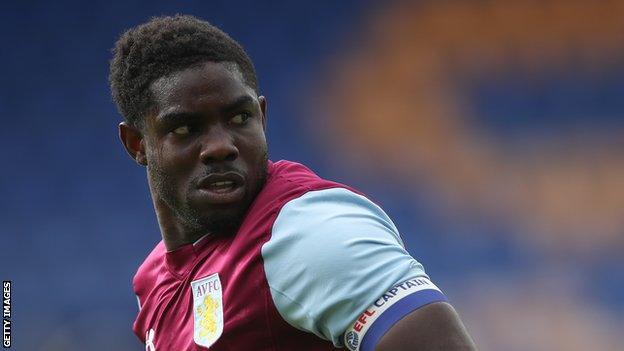Racism in sport: 'I was called "bling" because I was black' - Micah Richards
- Published

Micah Richards retired in 2019 following a number of injury-affected seasons
Former England defender Micah Richards says he was unfairly labelled as someone who flaunted his wealth during his career because of his race.
Richards, who played for Manchester City and Aston Villa, said he was dubbed the "bling king" by the media in reference to him buying expensive cars.
He said this led to him altering his behaviour.
"I found myself having to act in a certain way just to fit in so people wouldn't judge me," said Richards.
Micah Richards said he was dubbed the "bling king" by the media
"I had just played for England, I was black, I had an Audi and a Range Rover. There were a couple of stories circulating about me and I got labelled the 'bling king'.
"But every week there was a story about me saying I wasn't concentrating on football and it took me six or seven years to shake that tag off.
"I remember my agent saying a team were interested in me but they weren't sure about your private life and I'm thinking 'hold on, you are judging me, you don't know me'.
"I knew that I had to change to fit in. I have a personality and I like to joke but for two years in training I was silent because I didn't want anyone to judge me on my character."
Richards was speaking to BBC Radio 5 Live following days of Black Lives Matter marches across the UK, in response to the death of American George Floyd.
Floyd, 46, died after being arrested on 25 May in Minneapolis. The four officers involved in his arrest have since been charged over the death, which sparked days of protests in the US and demonstrations across the world.
A number of sportspeople have spoken out in the wake of the protests and the way it has affected their lives, including Richards' fellow footballer Raheem Sterling, who told the BBC that the fight against racism is "the most important thing at this moment in time."
Raheem Sterling: "The only disease right now is the racism that we're fighting"
Richards said he felt unable to speak up about racism during his career for fear of repercussions.
"At times I felt scared to speak out about what was right and what was wrong," he added. "I didn't want to say anything out of line because I felt it would affect my career.
"Every time I was asked about it, I would always say my piece but looking back over my career there have certainly been times I have not come out and said what I wanted because of the repercussions I felt would happen to me in terms of how people would perceive me.
"If you are in a white-dominated sport and the people at the top of that are predominantly white males, you don't want to step out of line.
"It is good that people are using their platform now. We can't just leave it any more. Not just in England and the United States, but around the world, now is the time.
"I think the tide is slowly turning."